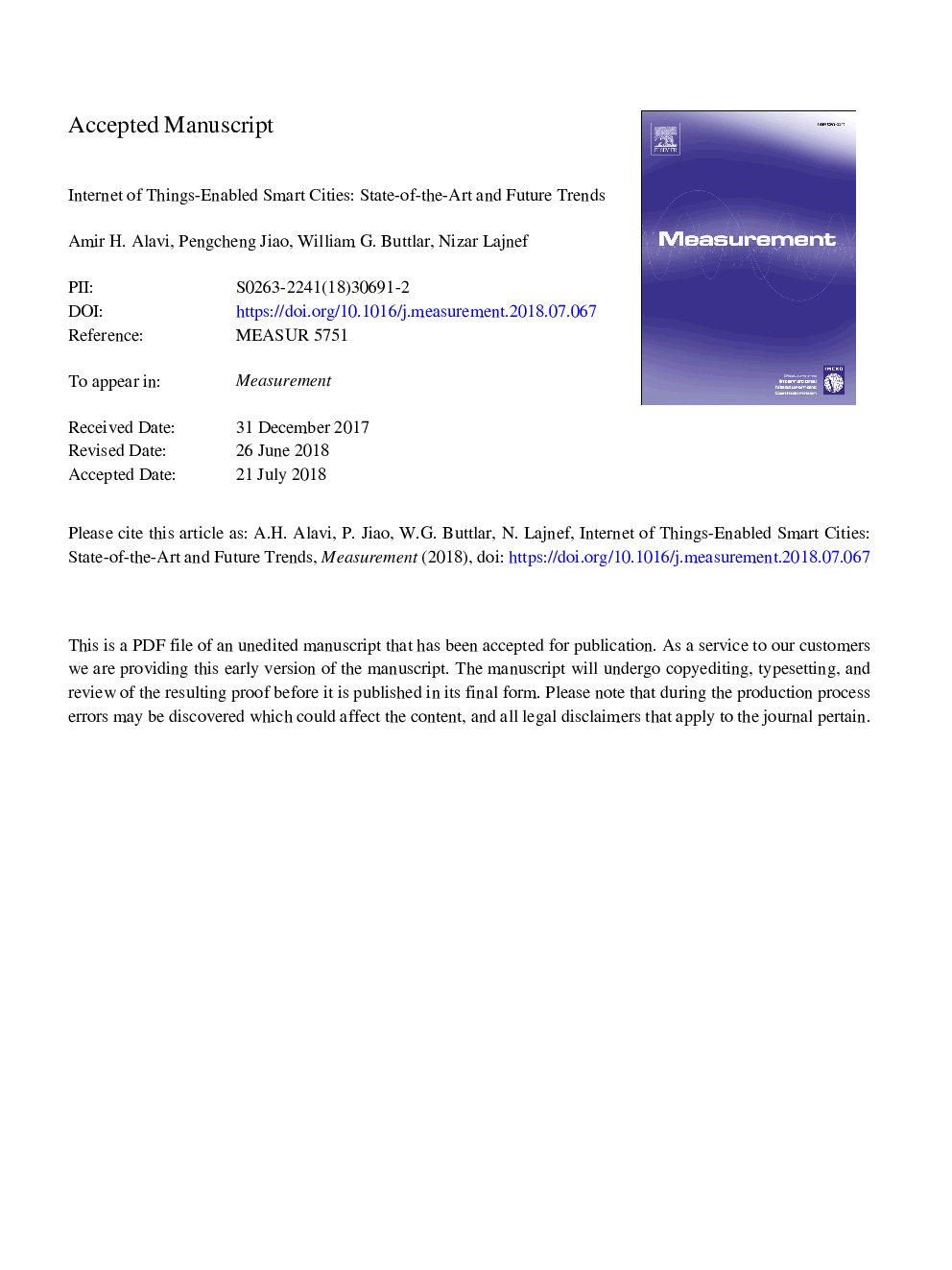| Article ID | Journal | Published Year | Pages | File Type |
|---|---|---|---|---|
| 7120562 | Measurement | 2018 | 37 Pages |
Abstract
The dramatic spread of urbanization in modern cities requires smart solutions to address critical issues such as mobility, healthcare, energy, and civil infrastructure. The Internet of Things (IoT) is one of the most promising enabling technologies for tackling these challenges by creating a massive world-wide network of interconnected physical objects embedded with electronics, software, sensors, and network connectivity. Arguably, IoT is becoming the building block for next generation smart cities owing to its potential in exploiting sustainable information and communication technologies. The rapid development of the IoT is impacting several scientific and engineering application domains. This paper presents a comprehensive literature review of key features and applications of the IoT paradigm to support sustainable development of smart cities. An emphasis is placed on concomitance of the IoT solutions with other enabling technologies such as cloud computing, robotics, micro-electromechanical systems (MEMS), wireless communications, and radio-frequency identification (RFID). Furthermore, a case study is presented to demonstrate how an affordable and suitable IoT-based working prototype can be designed for real-time monitoring of civil infrastructure. Finally, challenges and future directions for IoT-based smart city applications are discussed.
Related Topics
Physical Sciences and Engineering
Engineering
Control and Systems Engineering
Authors
Amir H. Alavi, Pengcheng Jiao, William G. Buttlar, Nizar Lajnef,
